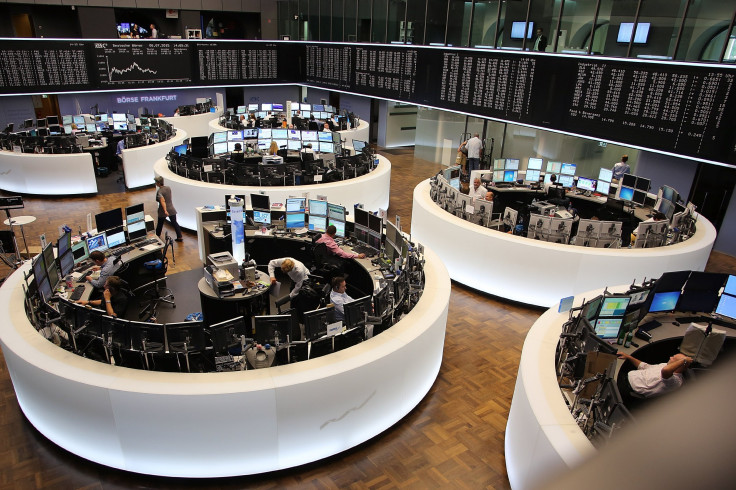Chinese Markets Lead Asia Rally, Yuan Strengthens

UPDATE: 7:00 a.m. EDT -- European stocks lost their momentum Monday and U.S. stock futures traded flat, even as Asian markets, led by China, extended their rally. Most European bourses retreated from the highs attained last week, and were trading slightly lower.
The pan-European STOXX 600 was down 0.2 percent, while London’s FTSE 100 failed to sustain its recent rally -- which started in late September -- and fell 0.5 percent. France’s CAC 40 was also trading 0.3 percent in the red. Germany’s DAX, meanwhile, was trading up 0.3 percent, paring its earlier losses.
“After six straight days of gains in European equity prices, it is no surprise to see markets retreat slightly,” Rebecca O’Keeffe, head of investment at Interactive Investor, told Financial Times. “A few weeks ago, any move higher was punctuated by aggressive falls and fearful investors, so while a slight pullback may be disappointing, the moderate moves are nonetheless an indication of the improving health and strength of the market.”
Earlier in the day, Asian markets closed broadly higher, buoyed by prospects of an imminent stimulus package in China. The Shanghai Composite Index climbed up 3.3 percent, while Hong Kong’s Hang Seng closed up 1.2 percent. In India, however, the S&P BSE Sensex fell from its nearly two-month high Monday, after Infosys Ltd. cut its dollar revenue forecast for the year to account for a stronger U.S. dollar.
Original story:
Chinese stock markets led gains in Asia Monday, as investors speculated over the announcement of further stimulus measures by the Chinese government. The Shanghai Composite Index extended its October rally, trading up 4.1 percent -- its highest level since Aug. 24.
Hong Kong’s Hang Seng Index was up 1.36 percent, while South Korea’s Kospi Composite Index traded up 0.3 percent. In India, the benchmark S&P BSE Sensex rose 0.16 percent, while the larger Nifty index pared its initial gains to trade up 0.2 percent.
Japanese markets were closed for a holiday Monday.
“Any sign of stimulus is being seized by the markets as a sign of stabilization and there is some bargain hunting, especially in the beaten down sectors, related to commodities,” Nicholas Yeo, investor manager at Aberdeen Asset Management, told Reuters.
The markets were also buoyed by recent comments by Yi Gang, the deputy governor of the People’s Bank of China (PBOC), who said the stock market volatility had limited impact on China’s real economy and that stock market adjustment had “largely run its course.”
“The Chinese economy faced some downward pressure but also showed a number of positive signs,” Yi told an annual meeting of the International Monetary Fund and the World Bank in Peru. “The impact of market corrections on the operation of China’s financial system is minimal because financial institutions are generally well-capitalized. … The Chinese economy continues to grow at a robust pace.”
China’s yuan also strengthened Monday -- rising against the dollar to reach its highest level since the surprise devaluation on Aug. 11 -- after the central bank set a stronger midpoint.
“The PBOC has successfully stabilized market sentiment, and the stronger fixings are supporting the yuan,” Kenix Lai, a foreign-exchange analyst at Bank of East Asia Ltd. in Hong Kong, told Bloomberg. “The central bank will keep the yuan stable in the next two or three weeks.”
© Copyright IBTimes 2024. All rights reserved.












